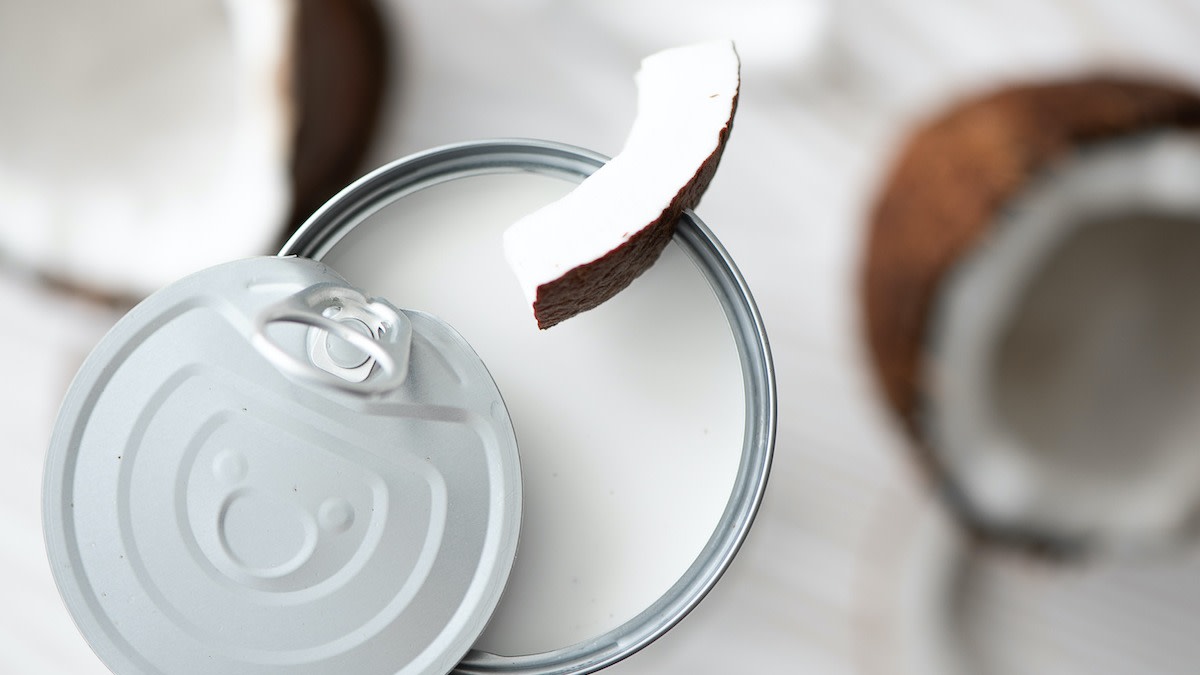How to Store Coconut Milk: 3 Ways to Store Coconut Milk
Written by MasterClass
Last updated: Dec 17, 2021 • 2 min read
Much like almond milk and other nut milks, coconut milk is a dairy-free alternative to cow’s milk known for its sweet, nutty flavor. However, like dairy milk, coconut milk can turn rancid if not stored properly. Learn how to properly store coconut milk and detect signs of spoilage.
Learn From the Best
What Is Coconut Milk?
Coconut milk is an opaque, white liquid extracted from the meat of a mature coconut. The traditional method for making coconut milk involves grating coconut meat, mixing it with hot water, and pressing the liquid through a cheesecloth. This process produces a rich, fatty liquid known as coconut cream. Coconut cream can be further processed into coconut oil or pressed again to make coconut milk. Commercially processed coconut milk—the kind you’ll find in cans at the grocery store—is grated and pressed mechanically, and often stabilized with the addition of guar gum.
Does Coconut Milk Go Bad?
Unopened, sealed containers of coconut milk can last several months, but opened coconut milk cans and cartons do go bad. Fresh, homemade coconut milk lasts up to five days in the refrigerator when properly stored in an airtight container. A plastic container with an air-tight seal and glass jars work well. You can also cover an open can of coconut milk with plastic wrap or aluminum foil, but your coconut milk may only last a few days with this method. You'll know that your coconut milk is bad if it smells foul, tastes sour, appears grey, or if you see the presence of mold or curdles.
How to Store Coconut Milk
You can make fresh coconut milk at home, or purchase a carton or can of coconut milk from the grocery store. Recipes often call for less than a whole can of coconut milk, but that doesn't mean you have to throw leftover coconut milk away. Three food storage methods will help extend the shelf life of coconut milk:
- 1. At room temperature: An unopened can of coconut milk can be stored at room temperature for several months. For the best results, store canned coconut milk in a cool, dark place, such as a cupboard or pantry. Some cartons of coconut milk are also shelf-stable and can be stored in a cool, dark place for several months or until the expiration date on the carton.
- 2. In the refrigerator: If you purchase a carton of coconut milk from the refrigerated section of a grocery store, it is likely not shelf-stable. Store your carton in the fridge until the posted expiration date and use coconut milk within seven to ten days of opening it. Store leftover canned coconut milk in a glass jar or airtight container in the fridge and use it within five days.
- 3. In the freezer: Coconut milk can be frozen for long-term storage. Keep in mind that frozen coconut milk will take on a grainy texture and lose some of its flavor when defrosted. To freeze coconut milk, measure out recipe-sized portions of coconut milk and add them to individual plastic freezer bags. Lay the bags flat in the freezer until completely frozen. To thaw, place a bag of coconut milk in the refrigerator overnight. Alternatively, coconut milk can be frozen in ice cube trays. Defrost frozen cubes of coconut milk directly in soups, stews, or Thai curries, or add frozen cubes directly to smoothies.
Want to Learn More About Cooking?
Become a better chef with the MasterClass Annual Membership. Gain access to exclusive video lessons taught by the world’s best, including Alice Waters, Gabriela Cámara, Niki Nakayama, Chef Thomas Keller, Gordon Ramsay, Yotam Ottolenghi, Dominique Ansel, and more.
